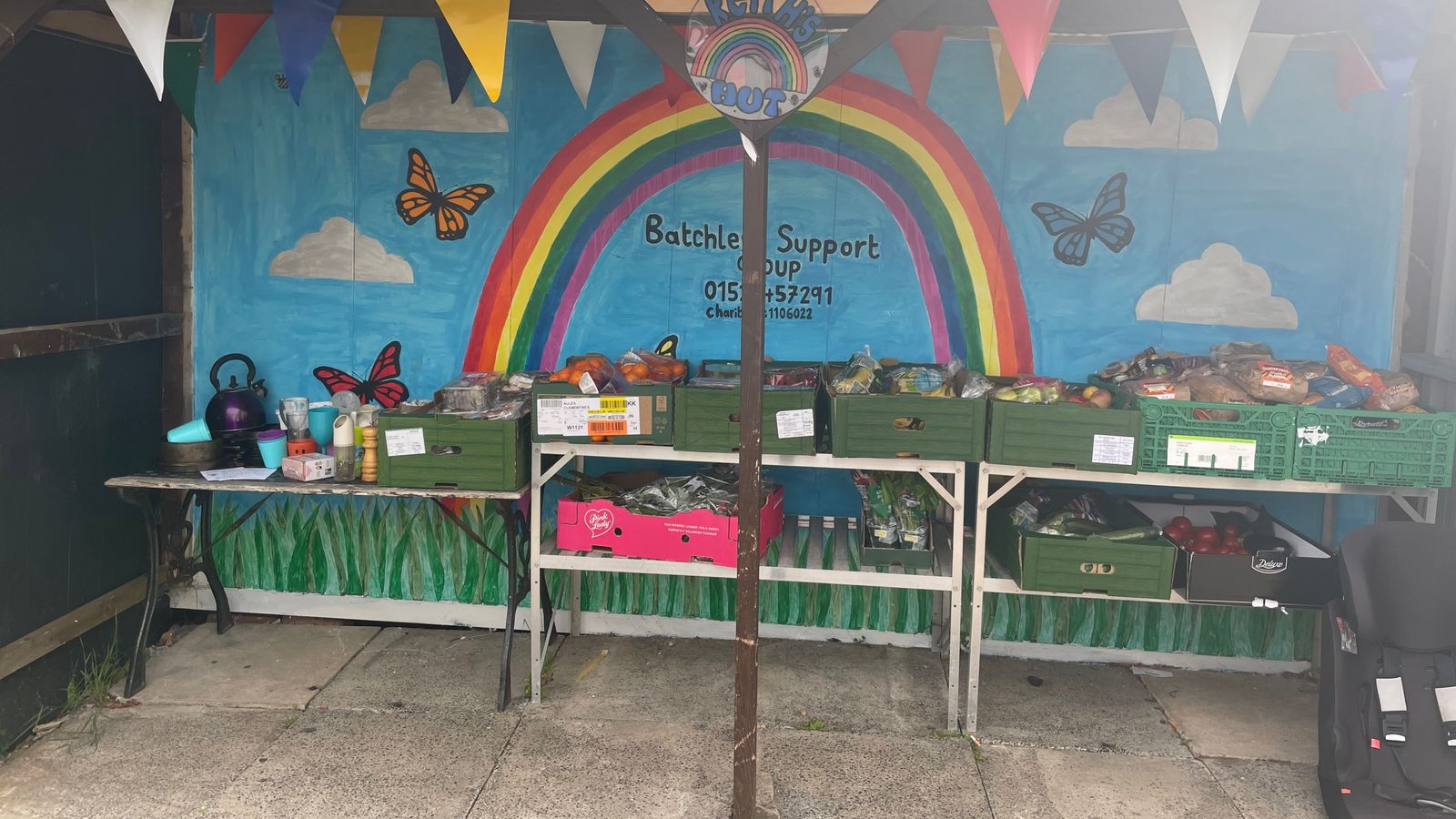At Batchley Support Group in Redditch, I meet Tony.
He’s 59 and one of a higher-than-average number of people in the town who have a mortgage.
That’s despite the area having the fifth-lowest average salaries in England and Wales.
It means he, like others, may be disproportionately affected by interest rate rises.
It turns out, for Tony, it’s much more than that.
He’s just been told his flat may be repossessed.
Tony’s circumstances are complicated. He bought the property 19 years ago when he had a job as a lorry driver.
Men who murdered aspiring lawyer Sven Badzak after Waitrose trip in case of mistaken identity jailed for life
Bank of England increases interest rate for 14th time in a row to 5.25%
Police dog shot and killed after seriously injuring handler
He subsequently became disabled, suffering brain damage, after a street attack.
In recent years his disability benefit changed to a “limited capacity” one.
It has meant he has struggled to make payments on his tracker mortgage and the recent interest rate rises have pushed him over the edge.
Read more:
Military personnel using food banks down to ‘personal decisions around budgeting’
Food banks distribute record emergency food parcels
Be the first to get Breaking News
Install the Sky News app for free
Intimidating and impossible figures
He takes us into his top-floor flat and shows us his papers in a darkened living room.
One letter clearly states his interest rate is rising by another 0.5% from 1 August and he may be losing his home.
The letter states how he is now £7,000 in arrears with £29,000 left to pay on his mortgage.
These are intimidating and impossible figures for Tony.
He doesn’t use heating and limited electricity.
He can’t afford to buy a single piece of food.
He’s been making £150 payments every month but it’s not even half of what he needs to.
‘I’d be dead’ without food bank
“I’ve been here for 20 years. It is my home,” he tells me. “You know, I’m disabled, I need heat and everything else. Where am I going to go? I have got nowhere, no house to go. That’s it.”
I ask him if he didn’t have the nearby food bank, what he would do?
He replies simply: “I’d be knackered, I’d be dead.”
Single mother reliant on food bank
At the Batchley Support Group Centre – a hub in the middle of this community which offers advice and help for all issues – I also meet single mother Sarah.
She’s holding down three jobs, including an NHS technician role, an online teaching job and acting.
It’s still not enough to help feed her and her family.
She lives with her 13-year-old boy, and her 19-year-old son when he’s back from university.
She’s lucky her landlord hasn’t put her rent up, but she describes how everything else has increased.
“You can’t change the rent, you can’t change your gas, your electric, your water, your TV licence….
“So you can only change the way that you spend the money you have.”
She can pick up as much food as she needs from the food bank here for just £1.
But she’s also worried about interest rates on her credit card.
She describes being reliant on it to pay for fuel for her car to get to work.
‘More working people are struggling’
Mark Barron runs the Support Group, and has had to order an extra load of food each week recently to cope with demand.
He says the service is also seeing a rise in employed people seeking help: “We see more working people who are struggling.
“And that tells us it’s really about disposable income, what’s left once you pay the bills, if anything, what’s left to live on? And that’s, that’s a real leveller for people.”
Redditch isn’t unique in this.
Disposable incomes are being stretched if not annihilated across the country.
Interest rate rises mean that standards of living, in general, are being swept away.
And with them, people like Tony, who are becoming collateral damage.








